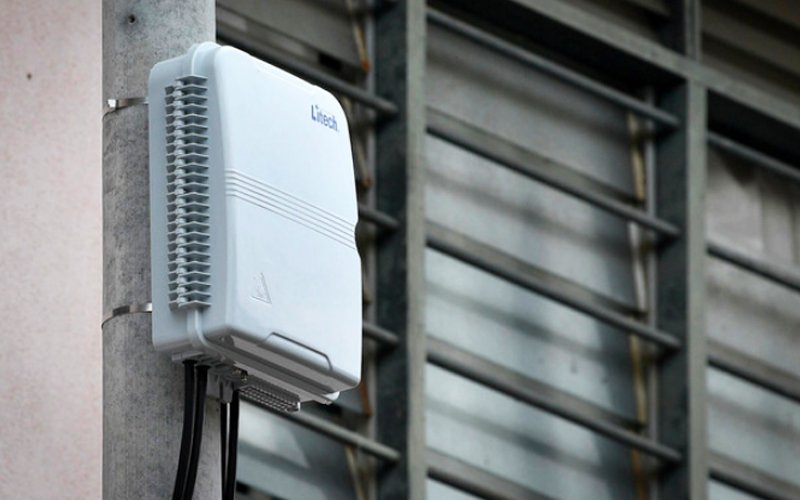As Opcom shares rise, so do whispers about cronyism and ‘New Malaysia’

It’s been a while since many used the term but “crony capitalism” seems to be a growing and whispered buzzword again.
(FMT) – Once, it was used by Dr Mahathir Mohamad’s political opponents to attack him and Barisan Nasional in the 1990s and even after he retired.
Now it is the involvement of Mahathir’s sons, Mukhriz and Mokhzani, in an optical fibre cable manufacturer that has given the term new impetus.
Share prices in the company have spiked in expectation that the company would benefit from a national plan to lay optical fibre cables across the country for Internet connections at much faster speeds.
For two noted critics of political involvement in business, the issue is one of morality and integrity, the linkages between business dealings and political financing, and the lack of action on a Political Finance Act to plug loopholes.
The issue has put PH on the spot, to face tough questions on how “new” is the “New Malaysia”.
While the current lexicon of Pakatan Harapan, ironically led by Mahathir himself, has featured “kleptocracy” as the key slogan, it is recent movements in the stock market that seem to have resuscitated the old “crony” label.
At the heart of it is Opcom Holdings Berhad, a manufacturer of optical fibre, in which Mukhriz and Mokhzani are involved.
Mukhriz, a co-founder of the company, owns a substantial number of its shares, which have spiked in volatile trading, from 45 sen to 65 sen on Friday (Sept 6). Mukhriz resigned as the company’s president in 2009, but his co-founder Chhoa Kwang Hua is the company’s deputy CEO, while Mukhriz’s elder brother Mokhzani was the chairman until the end of May.
The most recent Opcom filing with Bursa Malaysia on Sept 3 shows Mukhriz holding 31.9 million shares, or a 19.8% stake.

While Mukhriz’s critics are accusing him of making a quick buck through share disposals after Aug 28, it must also be noted that he has been steadily disposing of his shares since January, long before the announcement of the National Fiberisation and Connectivity Plan (NFCP).
The Malaysian Communications and Multimedia Commission (MCMC) has said it is unwise to claim that Opcom will monopolise the NFCP project, which is projected to cost RM21.6 billion over five years.
MCMC chairman Al-Ishal Ishak said Opcom was one of many manufacturers of optical fibre and that it was telecommunications companies, not MCMC, which would purchase the fibre cables.
Even though it can’t be said that Opcom will be the biggest beneficiary, it would be undeniable that a big name does help boost speculation. “Opcom’s share price is up because of the speculation that it will benefit from the NFCP as cable manufacturer,” said one fund manager, who asked not to be named.
He told FMT that even though Mokhzani has resigned as chairman, Mukhriz’s name would still give rise to the belief that the company would benefit.
For Dr Boo Cheng Hau of DAP the transactions involving high profile politicians is a cause for concern though he acknowledges nothing may be legally wrong in this issue.
“Pakatan Harapan has to be committed to wiping out cronyism by opening ourselves to public scrutiny,” said Boo, who often speaks on issues of good governance and transparency.
What is legal, the Johor DAP state committee member says, may not be morally right and PH must meet the highest moral expectations.
“Politics has to be separated from businesses and vice-versa,” he said. Companies linked to government politicians should not bid for any government-related contracts to avoid any conflict of interest.
Noted economist Edmund Terence Gomez says that while there are no regulations against Mukhriz being involved in Opcom, by right, once he became Kedah Menteri Besar, he should have declared his equity in the firm and liquidated his holdings or put them in a private trust over which he has no authority.
“What is required is a serious review of such situations in the country because the law is silent on it,” said the Universiti Malaya academic, adding such issues should be linked to issue of political financing and incorporated into the proposed Political Financing Act.
He said political financing touches on matters of private equity held by political parties and individual politicians but despite all the talk about the new law, a draft had yet to be seen.
“They are dilly dallying. What is taking so long? Where is this act? There should be discussions with experts and NGOs so that we can incorporate concerns raised in the Opcom issue. That way we can cover loopholes which may exist.”
Once again, Malaysians are having to confront the spectre of high-powered cables that connect the intricate web of business and politics.

